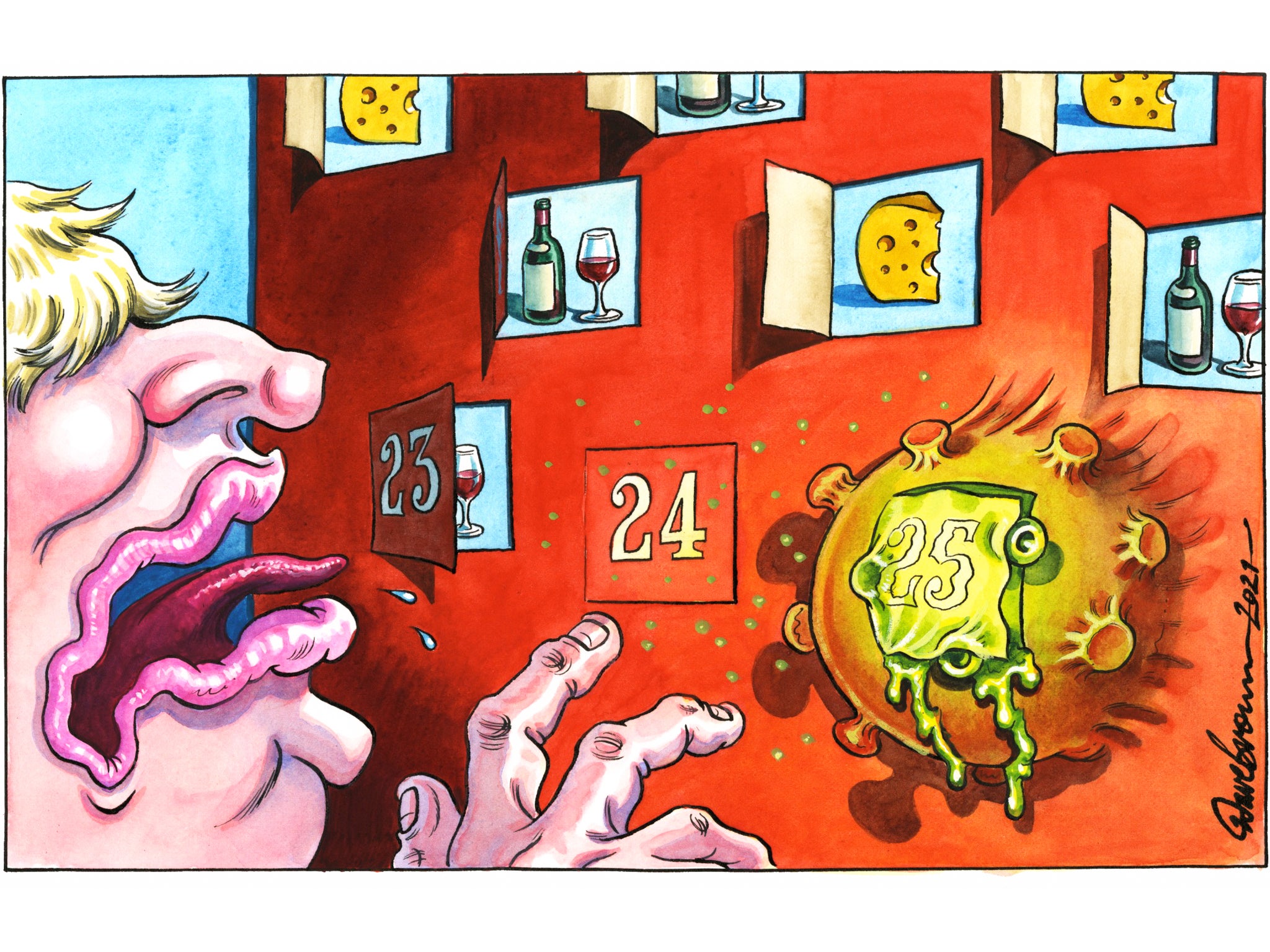We must protect the people and businesses hit hardest by Omicron
Editorial: The approach taken earlier in the pandemic was the right one – slow the spread of the virus and flatten the peaks of infection to protect the NHS, and support the parts of the economy and the families who need it

One of the more obvious and offensive evasions the government is presently engaged in is to engineer a sort of informal policy of reducing social interactions, but without ever authorising any specific regulations that would trigger a legal or moral obligation to provide further financial support for business.
Aside from a modest package aimed at the leisure, hospitality and entertainment sectors announced by the chancellor, there is, so far, no sign of a repeat of the comprehensive furlough scheme to protect jobs. Nor has the Treasury indicated any willingness to boost sick pay for those self-isolating, doing the right thing, and not infecting others while asymptomatic.
This line won’t hold if the Omicron virus epidemic starts to accelerate in the sort of ways the experts said was possible when it was first detected. The self-denying ordinances of millions of people has slowed the spread of the virus, but that has all too often meant cancelled works parties and nights in the pub or at the theatre. It looks very much, then, like those who have been trying to make a living from this line of work, rarely easy even in normal times, will be placed under further pressure. It is simply random and unfair. The approach taken in the earlier part of the pandemic was the right one – slow the spread of the virus and flatten the peaks of infection to protect the NHS, and support the parts of the economy and the families hardest hit through social insurance. It worked, and it can work again.
The least anyone, but especially those struggling to plan ahead in the service sector, should have a right to expect is for the government to level with them about prospects for the end of the year, new year and Hogmanay celebrations, and the possibility of recovery in January. The confusion is exacerbated by the mixed messages and hypocrisy emanating from Downing Street, and the impression of a prime minister not so much guided by science or even his own instincts, but those of the increasingly anti-scientific cabinet and bloc of MPs. They are driven, in turn, by an ever-more hysterical section of press delegitimising the likes of Professor Chris Whitty and Sir Patrick Vallance as “Domesday scientists” and “lockdown fanatics”. They ask for the “incontrovertible evidence” that Omicron is a threat, but by then it could be too late, and a hard lockdown may be inevitable.
The public is also right to ask why administrations in Wales, Northern Ireland and Scotland are pursuing different paths, and those in Ireland and parts of continental Europe are imposing lockdown-style measures. In England, Mr Johnson simply repeats the mantra that the data is under constant review. This helps no one – keeping data under hour-by-hour monitoring (if this is indeed what happens) is the least they can do during a public health emergency. People want to know more, and to understand the uncertainties. They want to know how they should behave at Christmas and new year, and business people need to understand what chance there is of them doing any business. They must be grateful to Prof Whitty at a personal level for his guidance on prioritising contacts, but it would be better, and clearer, if some fresh guidelines were issued that added some detail to such broad principles.
Encouragingly, from a purely public health standpoint, though not for businesses, many people have made their own decisions and erred on the side of caution. The booster vaccines, masks and even Covid status certificates impose little or no personal inconvenience, and actually help businesses retain consumer confidence that it is safe to enter their premises. Stronger measures, such as social distancing, the “rule of six” and so on will more seriously impact employers. It is a moment for decisions and for openness, neither conspicuous features of the disintegrating Johnson government.
Join our commenting forum
Join thought-provoking conversations, follow other Independent readers and see their replies
Comments
Bookmark popover
Removed from bookmarks